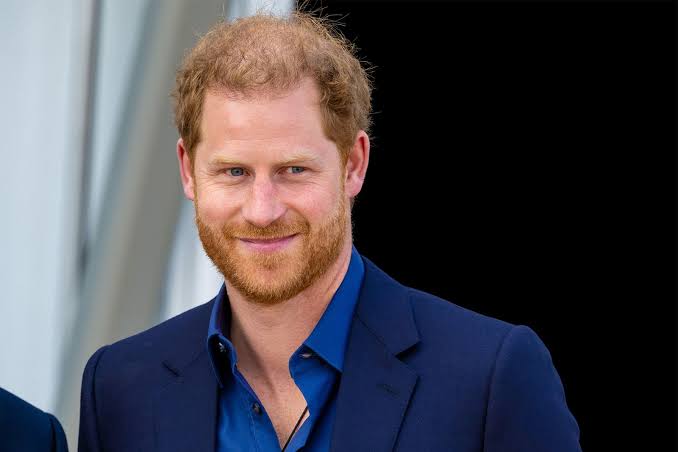Psychology of the scorned sibling (– a review of SPARE, a book by Harry, Duke of Sussex)
By Femi Olugbile
He was the second son, and pre-destined to lose the ultimate prize. The prize could not be bigger – the crown of St George. True, the Empire was no longer what it was in times past.
There has always been something compelling about the British Monarchy, though. It is the most visible monarchy in the whole world, and the nominal custodian of treasure of incalculable value from all over the world. Much of the wealth was purloined from other people, of course.
The United Kingdom’s ability for pomp and pageantry is unmatched anywhere. Every year, millions of people visit Britain to marvel at the trooping of the colours, and the changing of the guards at Buckingham Palace. The calendar is richly laced with ceremonial events commemorating battles long fought and won, and the landscape is dotted with monuments of heroes.
At the heart of the appurtenances of glory is the Monarchy. Descriptively, it is a ‘Constitutional Monarchy’, though monarchies were never meant to be ‘constitutional’. The powers of a monarch were supposed to be divine in provenance and absolute in expression. British Royalty has survived where many of its rivals have died off by wrapping itself around that contradiction in terms. It traces its origins from Anglo-Saxon England and medieval Scotland, with a heavy sprinkling of Germanic and other European genetic infusions. In 1707 the kingdoms of England and Scotland were joined into the Kingdom of Great Britain. In 1801, Ireland joined them to create the United Kingdom of Great Britain and Ireland, with the British Monarch at the head, holding effective suzerainty over a quarter of the world’s land mass. To this day, there is a Commonwealth of Nations, headed by the Monarch.
Any British monarchist would be justified in quoting the words of the poem Ulysses by Alfred Tennyson
‘…Though we are not now that strength which in old days moved earth and heaven
… that which we are, we are…’
Henry Charles Albert David was born to the then Charles, Prince of Wales, and his wife Diana, Princess of Wales, on 15th September 1984.
Charles was next in line to the throne. At the time of his birth, Henry, or ‘Harry’, was third in line to the throne, after his older brother William. A red haired, obstreperous youth, he was beloved of his grandmother, the Queen, and doted upon by his mother, Diana. The wild scrapes he got into at school and with friends on the social scene were treated with a certain amount of fond indulgence, even by his dour father Charles, who called him ‘darling boy’.
As he grew older, the distance between Harry and the most coveted throne in the world got progressively longer. William married early and spawned two children, a boy, and a girl. From third, Harry became fifth in line to the throne. Protocols at the time forbade the first and second heirs to the throne from travelling on the same plane together, for fear they could die in a crash and leave the realm without an heir. For Harry, he could travel anywhere he liked, and do whatever he liked, virtually. The realm would be safe. He was a ‘Spare’.
Harry has just published a book titled ‘SPARE’. It has become the fastest-selling non-fiction work in the history of the United Kingdom. And it has got many people talking about the Royal Family, mostly for the wrong reasons.
Harry is easy to vilify, and even dislike. He has got himself into bizarre trouble-spots – such as being photographed naked in Las Vegas or wearing a NAZI uniform and Hitlerite moustache to a fancy-dress party in England. He smoked cannabis casually from early, possibly still does, like many in his generation. He has even experimented with ‘psychedelics’. For many Britons, it is typical of his provocativeness and poor judgement that he married ‘half-caste’ Meghan Markle, and for them this has become the defining feature of his fall from grace.
But that is only one side of the story.
There is another, more compelling side that has been relentlessly downplayed by the British establishment and its press and public. Harry is the bravest and most adventurous member of the Royal family. His whole life appears to have been a determined effort to break out of the rigid visible and invisible boundaries that have defined and confined the Waleses. Boundaries of race, of class, of range. The Royal Family is not the squeaky-clean, divinely democratic institution that is portrayed. The very foundation of the Empire, and a hard core of British society to this day, are racist, even if they are unaware of it, and offended by the description. The personal charm of Elizabeth II did a lot to bring popularity for the monarchy, but also gave an illusory sense that all was well. The issues are substantially yet to be addressed.
In his fluid, very readable book, Harry implies marrying Meghan is only part, and certainly not all, of his life. His travails and beef with family and the British press, especially the Rupert Murdoch press, go back to the beginning of his life. He was regularly tarred with the brush of a scoundrel, and constantly lied against, even from school. His mum was victimised by the paparazzi and done to death in circumstances he still thinks suspicious. His family, including his father the King, and his brother the heir, were disrespectful to his wife, and never stood up for her, or for him.
Is there a way back to unity for this fractured family?
People will read ‘SPARE’ and make up their minds. It is an interesting read, even when the skin crawls at the brazen indiscretion of Harry mentioning the number of Talibans he killed in Afghanistan, and likening them to pieces on a chess board.
‘SPARE’ is written by Prince Harry, and published by Random House, New York

